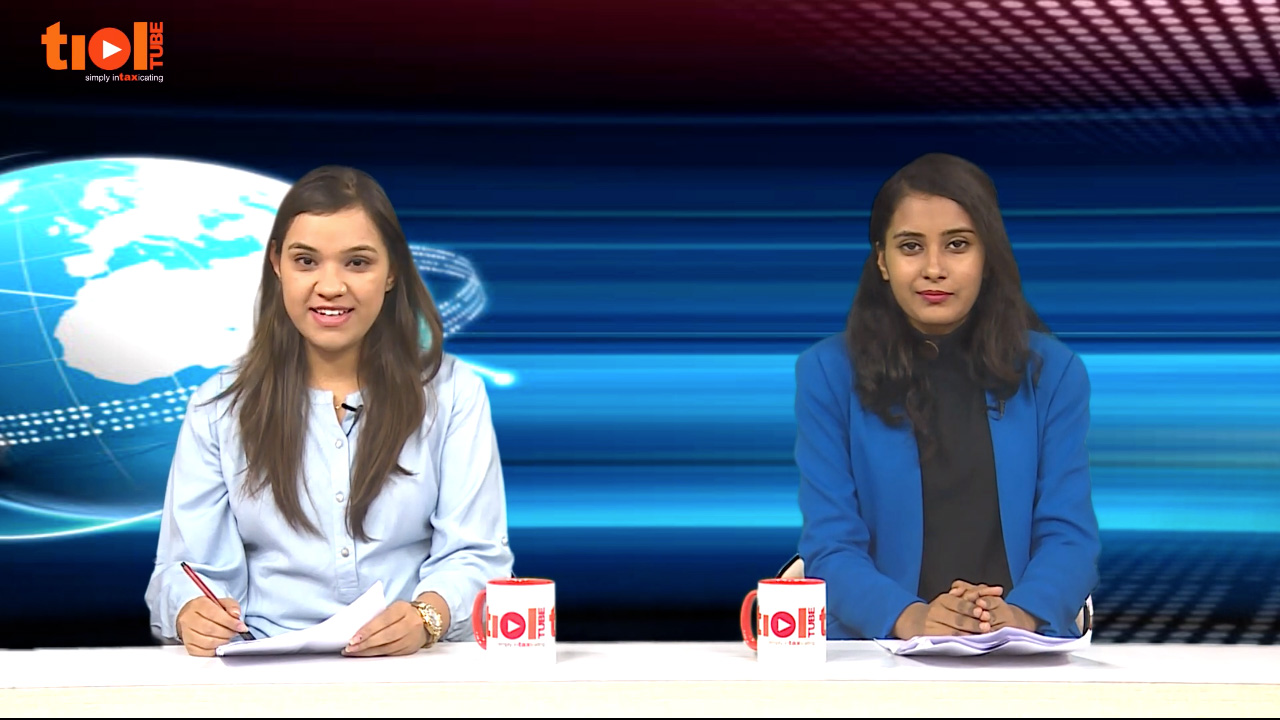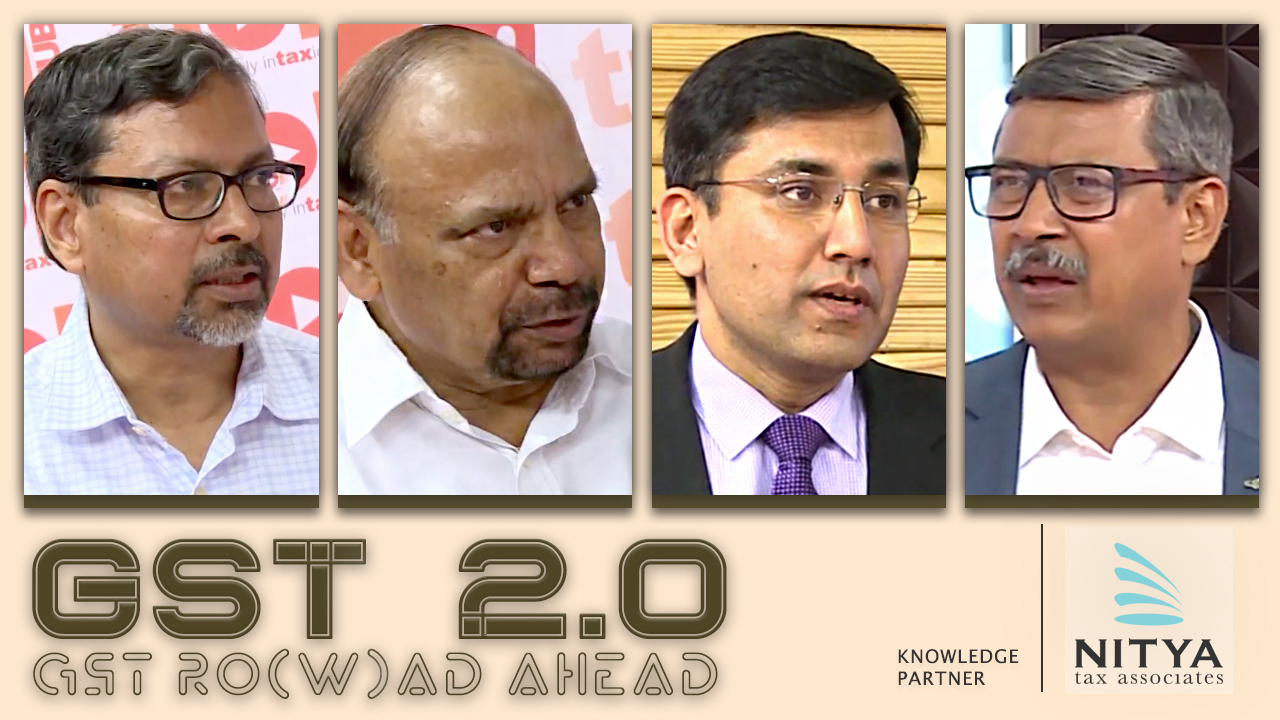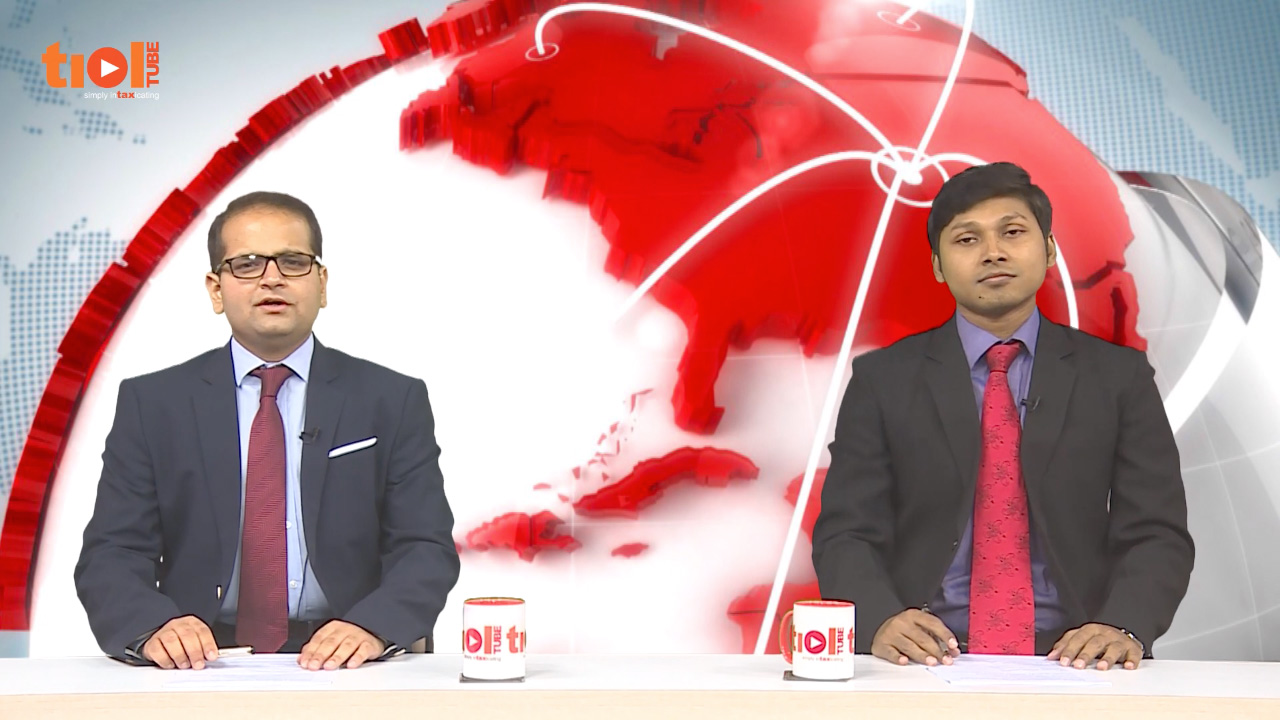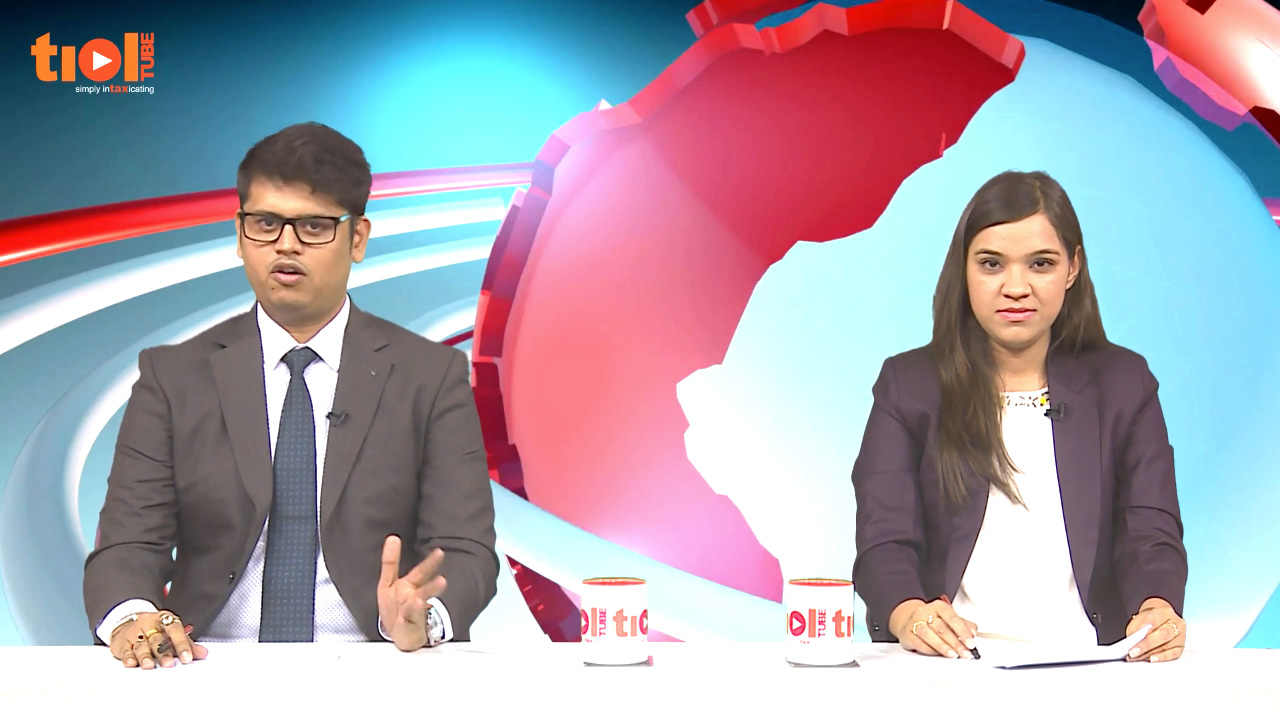|
SERVICE TAX
2019-TIOL-1631-CESTAT-ALL
Rudra Infra Developers Pvt Ltd Vs CCE & ST
ST - Appellants are engaged in providing services of "Construction of Residential complexes" and availed the benefit of abatement of 75% in terms of Notification No. 26/2012-ST and paid the Service Tax accordingly - however, since they had availed CENVAT credit on inputs, the benefit of notification was denied and duty to the extent of Rs.2.94 crores was demanded - during the course of adjudication, the appellant took a categorical stand that though they had initially availed the credit, but the same was subsequently reversed by them, even before the issuance of the show cause notice - however, demand was confirmed on the ground that the Notification has to be interpreted strictly - appeal to CESTAT.
Held: Reversal of credit by the appellant would lead to an inevitable conclusion that no credit stands availed by the assessee - In such a scenario the benefit of the Notification has to be extended to the assessee - demand set aside along with penalty: CESTAT [para 3]
ST - CENVAT - Credit taken on scaffoldings as being capital goods - Case of Revenue is that scaffoldings fall under chapter 73 of the Central Excise Tariff Act, 1985 and which stand excluded from the definition of capital goods - demand of Rs.11.15 Lakhs stands confirmed against appellant, hence appeal to CESTAT.
Held: Admittedly the definition of capital goods provided under Cenvat Credit Rules excludes chapter 73 from its ambit - the appellant has no case on merits - demand confirmed: CESTAT [para 3]
ST - Limitation - SCN was issued on 17.11.2014 for the period July 2012 to March 2014 - The appellants have been availing the credit by reflecting the same in their Cenvat Credit account and by filing the regular ST-3 returns - In such a scenario, no malafide, suppression or mis-statement can be attributed to them so as to justifiably invoke the longer period of limitation - major part of the demand is barred by limitation, however, a part of the demand would fall within the limitation period which would be quantified by the original adjudicating authority and intimated to the assessee - in the absence of any findings of malafide, penalty is required to be set aside in toto: CESTAT [para 3]
- Appeal disposed of: ALLAHABAD CESTAT
2019-TIOL-1630-CESTAT-KOL
Security And Investigation Bureau Vs CST
ST - Demand in the show-cause notice was arrived at on the basis of the Bank statement of the assessee for the relevant period - Adjudicating Authority has carefully considered the submissions made by the assessee and has excluded various amounts received in the Bank towards interbank transfers, refund of EMD/FDR encashment, cheque returned and other charges - Show-cause notice has been originally issued by taking into account the entire receipt in the Bank account, however, it is evident that the receipts indicated in the impugned order are clearly not by way of consideration for any service rendered - Therefore, no infirmity is found in the stand taken by the Commissioner to exclude such amounts from the gross value of taxable services - appeal filed by the Revenue is rejected: CESTAT [para 11]
ST - Amount received towards manpower supply as well as cleaning service can be considered for exclusion if such amounts have been received as consideration for providing these services, during the period prior to 16.06.2005, since such services were introduced in the Statute on w.e.f 16.06.2005 - Table as well as accompanying documents, even though duly certified by the Chartered Accountant, does not substantiate the above consideration, therefore, matter is remanded - since the matter is very old, the denovo adjudication is to be completed within three months: CESTAT [para 13 to 15]
- Revenue appeal rejected/Assessee appeal allowed by way of remand: KOLKATA CESTAT
CENTRAL EXCISE
2019-TIOL-1183-HC-MUM-CX
Bharat Petroleum Corporation Ltd Vs CCT & GST
CX - The impugned order of Tribunal has followed its earlier order in the case of same assessee in 2013-TIOL-1573-CESTAT-MUM - Being aggrieved, the assessee had filed an Appeal to this Court - This Court by an order 2015-TIOL-368- HC-MUM-CX while admitting the appeal on the identical questions of law, as raised in this appeal, also stayed the impugned order of the Tribunal - In the present case also, the impugned order of Tribunal, as has in the earlier case, remanded the matter to the original authority for determination of the duty liability after ascertaining the availment of central Cenvat credit - However, following the earlier order passed by this Court, the impugned order stayed and restrain the respondents from acting in furtherance of same till final disposal of this appeal: HC
- Appeal disposed of
:
BOMBAY
HIGH COURT
2019-TIOL-1633-CESTAT-MAD
Madras Aluminium Company Ltd Vs CCE & ST
CX - The appeal has been filed by assessee against the order passed by Commissioner (A) who has dismissed the appeal on the ground of being time-barred - Against the order of Commissioner (A) assessee had approached the Jurisdictional High Court and vide judgment dt. 03.12.2014, the High Court had disposed the writ petition - Tribunal do not find that there is any direction to dispose the appeal on the merits of the case - When commissioner (A) has rejected the appeal on the ground of being time-barred, this Tribunal cannot go into the merits of the matter - No flaw found in the rejection of appeal by Commissioner (A) - On reading of the judgement dt. 03.12.2014 of High Court, it is very much clear that there is no direction to decide the appeal on merit and there is no room for any confusion - Following the decision of the Apex Court in Singh Enterprises - 2007-TIOL-231-SC-CX , no grounds found to interfere with the impugned order: CESTAT
- Appeal rejected: CHENNAI CESTAT
2019-TIOL-1632-CESTAT-AHM
Navkar Transcore Pvt Ltd Vs CCE & ST
CX - The issue involved is whether the assessee is required to pay the demand raised under Rule 6(3)(ii) of CCR, as they have availed Cenvat credit in respect of common input services used in manufacture of excisable goods as well as for trading activity - Assessee before issuance of SCN, reversed the Cenvat credit, the proportionate credit as per the statement was Rs. 1,82,426/-, however, as there was dispute on the quantification, after passing the adjudication order the assessee have reversed an additional amount of Rs. 4,55,232/- - Thus, a total amount of Rs. 5,42,914/- was reversed, which was the total credit availed on the common input service - In view of the judgments in Secure Meters Limited and Mercedes Benz India (P) Limited - 2015-TIOL-1550-CESTAT-MUM , the issue is settled that once proportionate credit is reversed along with interest if any arise due to delay, reversal of the demand under Rule 6(3)(ii) cannot be made - Though it appears that assessee have reversed the credit however, no evidence was produced regarding payment of interest - Since a part reversal was made after passing the order by original adjudicating authority, the correctness of reversal was not verified by Adjudicating Authority - The Adjudicating Authority is directed to reconsider the whole issue particularly, if it is found that the assessee have paid the Cenvat credit of attributed to common input services used in the trading activity and interest on such credit, then the demand would not sustain - The Adjudicating Authority shall pass a fresh order after examining the said aspect: CESTAT
- Matter remanded: AHMEDABAD CESTAT
CUSTOMS
2019-TIOL-1634-CESTAT-HYD
CC & CE Vs Himadri Chemicals And Industries Ltd
Cus - The assessee-company manufactures coal pitch, high creosote oil, coal tar enamel & coal tar tape - Finished goods were cleared partly to sister unit & partly to unrelated buyers - Upon audit, it was noted that the value adopted in respect of clearances to sister unit were lower than the value adopted for clearance to unrelated parties - The Revenue opined that clearances made to the former be done as per Section 4(1)(b) of the CEA 1944 r/w Central Excise Valuation (determination of price of excisable goods) Rules, 2000 - The Revenue proposed to valuate the products cleared to their sister units by adopting the value nearest to the time of removal of such goods in respect of clearances made to other un-related buyers - SCN was issued proposing demand for differential duty with interest & penalties being imposed - On adjudication, the demands, interest & penalties were confirmed - On appeal, the Commr.(A) quashed such findings on merits & on limitation - Hence the Revenue's appeal.
Held - Limitation - It is clear that the Revenue was aware of the valuation method adopted by the assessee when clearing finished products - The Revenue also took note of the clearances of finished products, clearances made to sister concern as well as captive consumption of goods - The entire demand was raised based on accounts maintained by the assessee - ER returns were filed disclosing value - All transactions are accounted for in the books & reflected in financial statements - Hence the Revenue failed to point out any positive act on part of the assessee to suppress facts with intent to evade payment of duty - In fact, the assessee obeyed the Revenue's instructions & paid duty as per valuation directed by the Revenue - Hence no suppression of facts can be attributed so as to justify invoking extended period of limitation: CESTAT
Held - Clearance to sister unit have been confused with clearance to related undertaking - In case of clearances to the former, the assessee is eligible for credit, which makes the entire situation to be revenue-neutral - On this score too, no suppression of facts with intent to evade payment of duty can be alleged - Hence the O-i-A is correct & warrants no interference with: CESTAT
- Revenue's appeal dismissed: HYDERABAD CESTAT |









